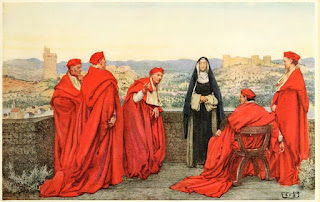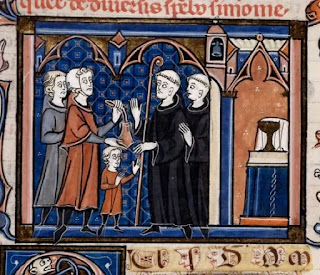At the foundation of this question—and all discussions about periods in history—is whether you can accurately establish periodization at all. One of the first to "break up" the flow of events was Leonardo Bruni, mentioned as a tutor of Lorenzo Valla. Bruni has been called the first modern historian, and was the first to define human history as three periods: Antiquity, Middle Ages, and Modern. He was influenced by Petrarch, who described the glorious Classical Roman period versus the post-Classical tenebrae or "darkness." (This may have been the origin of the popular modern term "The Dark Ages.")
For Bruni to describe "Modern" as his lifetime (c.1370 - 1444) may cause us to smile, but of course it was modern to him...and may in fact still be considered the start of the Modern Era. Was there a shift in something in the 1400s that allows us to think of it as the start of our own era?
What trends or cultural shifts were significant enough—and continuous enough—to motivate modern historians to say that the Modern Era started in the 1400s? What was so different? We talk about the Renaissance as a rebirth of art and culture, but there was more:
•Globalization, with the expansion of mercantilism and sophisticated international economics
•The Age of Exploration/Discovery, with increased travel and improved methods of transport
•Religious dissent, and the development of secular policy
•The decline of feudalism, and the development of civic politics
The point is not just that these were different from what came before, but that these changes are still in place. Many of the changes that started in the 1400s are still with us, making the argument that what makes us "modern" and not "medieval" has in fact been going on for about six centuries, not just two or three.
A modern medievalist named Nancy Partner once said that if Medieval Studies wanted more respect from historians in general, they should start calling the Middle Ages the "Really Early Modern Era." Well, that may be stretching it, or maybe not, at least when it comes to the English language. Of the 1000 words most commonly used in Modern English, 83% come from Old English. Tomorrow I'll give you one idea of how much Old English you are speaking on a daily basis.














